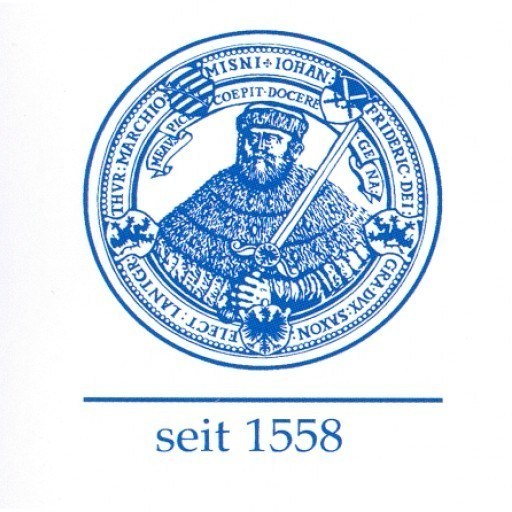Photos of university
The International Organic and Molecular Electronics Master's Programme at Technische Universität Dresden is a cutting-edge interdisciplinary program designed to equip students with comprehensive knowledge and advanced skills in the fields of organic electronics, molecular materials, and nanotechnology. This program aims to prepare graduates for careers in research, development, and innovation within the rapidly evolving landscape of electronic devices and materials based on organic and molecular components. Throughout the course of study, students will explore the fundamental principles of organic semiconductors, molecular electronics, and nanoengineering, gaining a deep understanding of their properties, functionalities, and applications. The programme combines rigorous theoretical coursework with practical laboratory training and research projects, enabling students to develop proficiency in synthesis, characterization, and device fabrication of organic and molecular electronic components.
Students will also delve into allied fields such as materials science, chemistry, physics, and engineering, fostering a multidisciplinary perspective essential for innovation in organic electronics. The curriculum emphasizes modern techniques such as thin-film deposition, spectroscopy, microscopic analysis, and device testing, preparing students to contribute effectively to the development of flexible displays, organic solar cells, light-emitting diodes, sensors, and other emerging electronic applications. The programme benefits from the university’s strong research environment, state-of-the-art laboratories, and collaborations with industry partners, providing students with opportunities for internships, joint research projects, and networking.
Graduates of this programme will be well-equipped to pursue careers in academia, industry, or entrepreneurship, contributing to advancements in sustainable and innovative electronic solutions. The International Organic and Molecular Electronics Master’s Programme at TU Dresden offers an inspiring educational experience that blends scientific excellence with practical relevance, fostering the next generation of pioneers in organic and molecular electronics.
Educational organisation
Semester 1: Organic Semiconductors, Semiconductor Technology, Concepts of Molecular Modelling, Basics (Chemistry, Semiconductor Physics, Circuit Technology, Solid State & Quantum Physics)Semester 2: Optoelectronics, courses from two of the following specialisation areas: Physics, Electronics, Chemistry, Nanotechnology
Semester 3: Molecular Electronics, Physical Characterisation of Organic and Organic-Inorganic Thin Films, Materials for Nanoelectronics & Printing Technology, specialisation courses, Project Work
Semester 4: Master's Thesis
The unique module "Project Work" offers the opportunity for an internship or independent research project within the Master's programme.
Internships
An internship of 240 hours is to be completed during the summer break between the second and third semesters. Students find research projects which correspond to their interests at the university, research institutions, or in industry.Forms of assessment
Oral and written exam, seminar papers, presentations, project work, lab coursesCourse objectives
The interdisciplinary Master's programme in Organic and Molecular Electronics is designed to provide students with professional skills needed to advance a successful international career in the cutting-edge field of organic electronics.Language requirements
For your application, you need a certified copy of a certificate that provides evidence of adequate language proficiency (e.g. IELTS 6.5, TOEFL 550 or equivalent).Academic requirements
First degree in physics, chemistry, electrical engineering, materials science or a related fieldPlease note: for most non-EU countries (including India and China), a minimum of a four-year Bachelor's degree or three-year Bachelor's degree plus a one-year Master's degree is required (i.e. a minimum of a four-year study duration).
Enrolment fees
The enrolment fee is currently about 260 EUR per semester and includes a semester ticket, which entitles students to use public transport in and around Dresden and regional trains within the federal state of Saxony. Additionally, it offers benefits (e.g. price reductions) for many cultural and leisure activities in Dresden.Costs of living
The cost of living varies according to personal needs and preferences. However, about 700 EUR per month represents an average budget for a student in Dresden, including expenses for accommodation, food, items of everyday life, and insurance.(This figure is relatively low compared to other big German cities.)
Arrival support
The university provides counselling via e-mail and personal appointments regarding all matters related to arrival and living in Dresden, guided campus tours, and welcome receptions to which new students are invited to meet other students and professors.For PhD students and researchers, the Welcome Center also provides additional support services concerning visa issues, finding suitable accommodation, etc.
Services and support for international students
TU Dresden International Office offers a tutor network that helps new international students organise their studies. All international freshers are invited to an introduction day at the beginning of their first semester, on which they will also meet their tutors.Furthermore, the International Office's cultural office and various student initiatives provide a plethora of social and cultural activities each semester (guided city tours, trips in the region and to other cities in Germany or neighbouring countries, language tandems, etc.).
Accommodation
It is quite easy to find accommodation in Dresden. Accommodation is available either via the Studentenwerk Dresden or on the private market. Rent for a single room in a student residence is approx. 250 EUR.Private housing can be found online. We recommend moving into a hall of residence at the beginning of your stay in Dresden and later find a place on the private market or in a shared apartment, known in German as a "Wohngemeinschaft".








